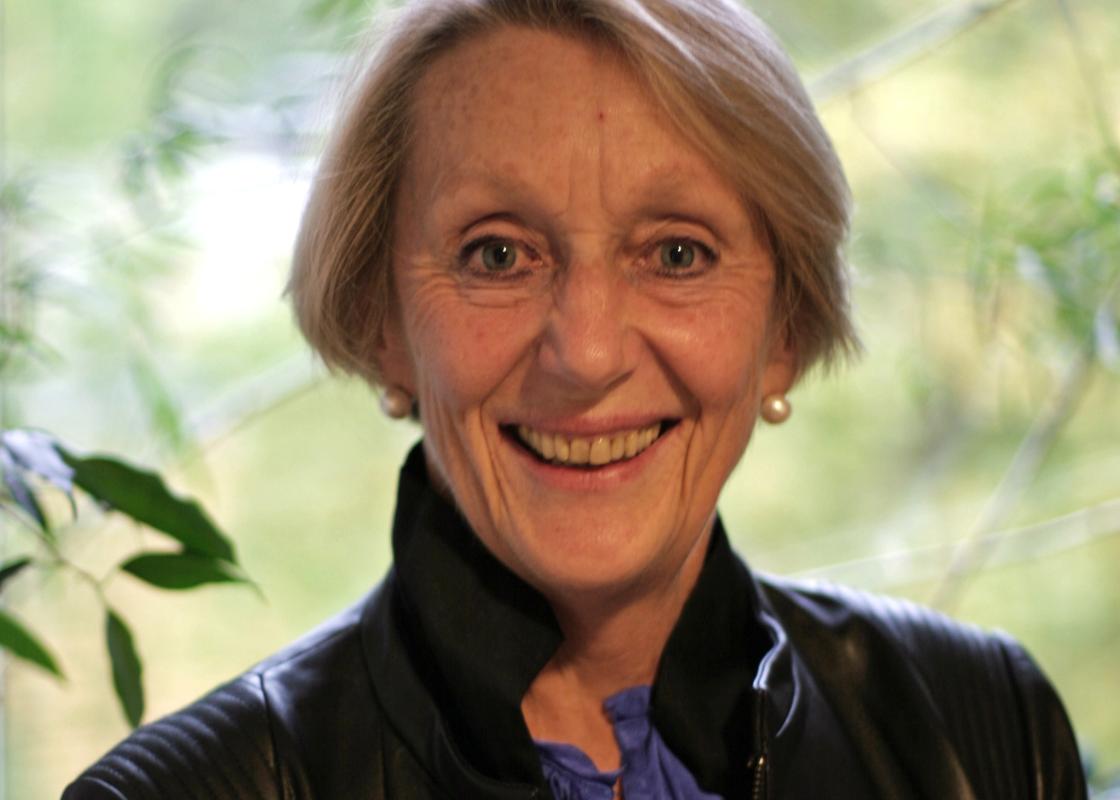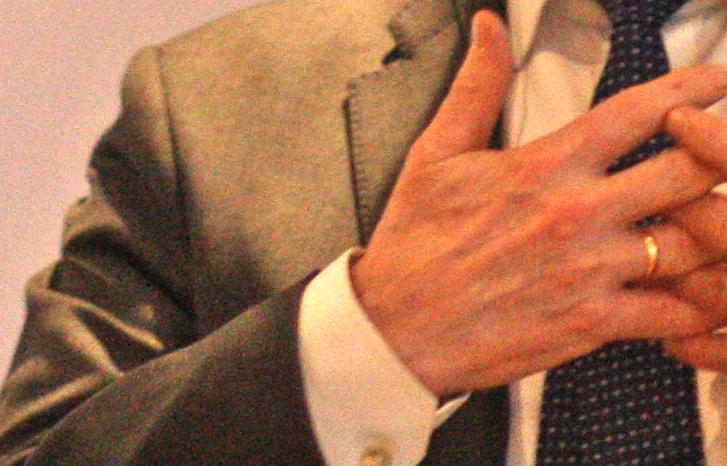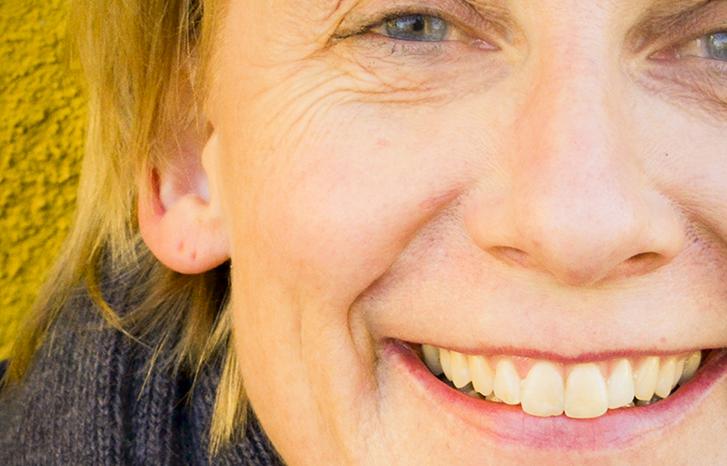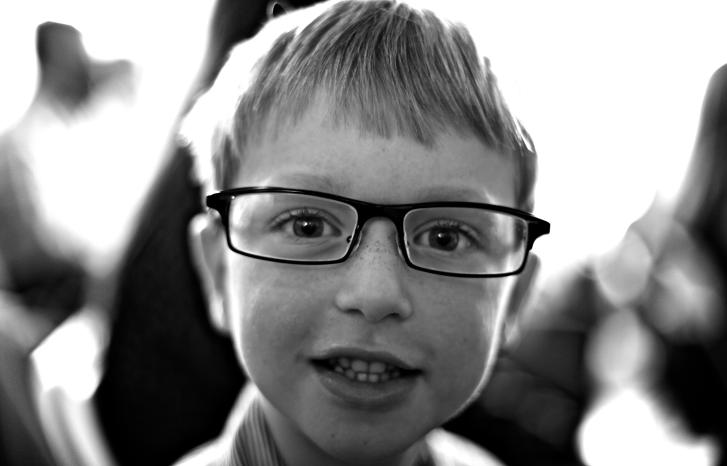In the spring of 2013, Professor of Psychology Anne Inger Helmen Borge thought she had received a spam email. She asked a colleague in the administration to look into the matter. She was told, no, it was not spam: From among 16 000 applicants, Helmen Borge was offered a position as one of 400 experts in the EU framework programme Horizon 2020, the world’s largest research and innovation programme with a budget of EUR 80 million over seven years.
As a 63-year-old, Helmen Borge thought her age might work against her, but she applied when the leadership at the University of Oslo encouraged her to do so. The first position she was offered was in the Health, Demographic Change and Wellbeing group, and it is this one that she refers to as the main group. Then she was asked to take part in the project’s Advisory Group on Gender – an interdisciplinary group that assists the other groups with integrating gender perspectives into research.
“We had checked off some items when we applied, and I checked the boxes for international health and gender, among others, so I was also appointed to the Advisory Group on Gender. There I met scholars from the other groups, and it’s been so interesting!”
“EU has invested heavily”
The interdisciplinary group is comprised of individuals with gender expertise from the other advisory groups – from business leaders and researchers to professors in architecture, space travel – and gender.
“Those of us who work in the social sciences and health are used to incorporating sex and gender into our research. But for a transport expert, a climate researcher, a northern areas researcher, an energy expert – it is much more difficult. Some make light of the idea that gender perspective should be included in all areas, but the EU has invested heavily in this by creating an entire section that administers gender equality and gender issues.”
The group’s mandate includes giving written advice to the European Commission during the preparation of the various work programmes. For 2016–2017 these were: excellence in science, industrial leadership, societal challenges and other opportunities. Helmen Borge summarizes the objectives in three points:
– Increase the number of women in research;
– Increase the number of women who serve as Principal Investigators for large grant applications;
– Ensure that biological, social and cultural gender dimensions are incorporated into research content.
When the gender group meets, which is at least three times a year, they review documents from the “main groups” and discuss what input they will take back to their respective groups.
“We look at where gender and gender equality are mentioned, and we point out if they are missing,” says Helmen Borge.
She holds up a document full of sticky notes in various colours. It is a two- to three-page call for proposals in which she has marked where gender should be incorporated (orange) and where it is mentioned more generally (red).
“For example, in some calls for proposals the applicant must answer how the research can be adapted to the different needs of men and women. If your research doesn’t fulfil this requirement, you won’t get funded.”
Two centimetres of text
When the experts meet in Brussels, they usually work in groups.
“We’re given paper, pencil and a white board, and then we’re asked to work for an hour together and answer certain questions. The Commission’s representatives listen and take notes. They have unusually good note takers. The entire system is incredibly professional. It’s astounding how much they take in. And I have learned so much. Surprisingly, I feel like it’s an easy organisation to work with.”
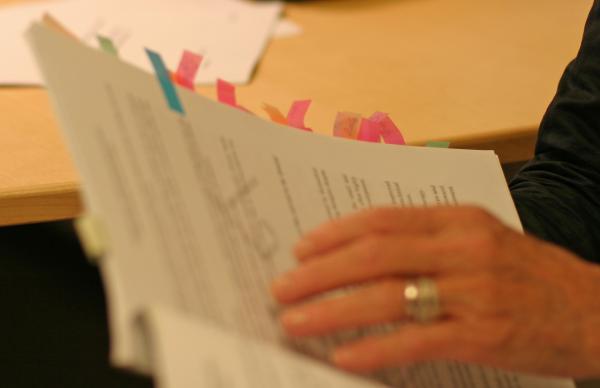
According to Helmen Borge, the group’s feedback on a document can end up in just two centimetres of text.
“Often it takes nothing more than adding the words ‘gender and society’ in parentheses to satisfy us, because we know that there is a battle over each word, each comma. But it is extremely important to formulate the text correctly, because how gender is formulated can be critical for the content of an application.”
The group uses content analysis of submitted applications to get direct feedback on how well their work has succeeded.
“We are told both how many more female leaders there are and how much a grant application attempts to analyse the topic. If it’s not good enough, we tell them that gender should be incorporated more clearly.”
In addition to direct written input, the expert group has also developed a web-based training programme for evaluators – those who process grant applications submitted to Horizon 2020.
“They have a one-week training, and that is a lot, but during that time everyone wants in – climate experts, mathematicians, statisticians, lawyers…So it’s not so easy to get a space.”
Want to know more about gender research? Sign up for our newsletter.
Choose your battles
The professor has learned that in Brussels she must speak up when she has the opportunity.
“You have to be completely attentive. Things happen fast. If you don’t take the microphone right away, you will miss your chance.”
“Often it takes nothing more than adding the words ‘gender and society’ in parentheses to satisfy us.”
“I have also learned to limit myself. I’m a talkative person, and I’ve had to learn to keep quiet. And I’ve had to learn that I have to give up sometimes. You try, but you don’t always win support for your point of view. It is those above us who set priorities.”
Since Helmen Borge is a member of the main group for health, which is one of the most prominent on sex and gender research, she has felt a certain amount of pressure from her colleagues in the gender group.
“Some want gender issues to be a topic in the health group on par with infectious diseases and chronic conditions, for example. But we won’t get there, and I’ve come to understand that it would be foolish to try to fight that battle. It can be difficult to get gender issues on the agenda when the experts around you are concerned with problems like Ebola and the Zika virus. But of course gender must also be studied in the health field.”
See why the Ebola virus affect women the hardest in this video on gender perspectives in research
High drop-out rate, few men
In the beginning there were 30 members of the group. But the drop-out rate is conspicuously high.
“It’s a lot of work, and as a result some people abandon the group and disappear. As you may know from group work, there is always a core of participants who stay. In the second year there were only 10–12 of us left. We worked very well together and sent each other input.”
The group consists of experts from various fields. Some are gender scholars; others are academics from the natural sciences or professionals from the business sector. Helmen Borge is serving her second term in the group, and she praises the group’s leadership for making positive changes to improve the structure. But she thinks the composition of the group could be better.
“The Commission tried to appoint more men, but the men did not come to the meetings very often. This concerns me. We have ended up with a group of women only, both in the leadership and in the expert group in general.”
“Do you lose gender perspectives because of this?”
“Yes, you do. Very much so.”
“The Commission tried to appoint more men, but the men did not come to the meetings very often.”
In addition, Helmen Borge misses having senior-level academics in the current group.
“I think it’s rather unfortunate. I think I have been the only professor at some meetings. There have been too many members of the management team of private companies.”
“Why is that unfortunate?”
“For example, some group members have seized on the concept of ‘implicit bias’. They are very concerned that researchers have prejudices or biases in what they convey and study that the researchers themselves are not aware of. It’s a little difficult for me who is well-versed in social psychology to see that they are talking about things they don’t know enough about and that they want to push it as a main topic vis-à-vis the Commission. I feel that they have gotten stuck on a detail.”
“I told them that it’s perfectly fine to address the sources of bias we all have because it’s a big problem. But I believe the concept of implicit bias is inappropriate in this context. It should be up to each researcher to interpret his or her results. If you have controlled for biases and you come up with your findings, then you must explain how you interpret your findings. I think they have confused these concepts.”
“But doesn’t implicit bias also suggest that you are influenced by your own biases when you design your research project?”
“Maybe so. But in any case I think that the concept underestimates the researchers somewhat. Or it is something you should hear about from the reviewers. It suddenly became a huge topic for certain individuals in the expert group, even though they perhaps didn’t have sufficient knowledge.”
See also: Norway not good enough on mainstreaming gender perspectives in research
Good progress
But after three years in service to the European Commission, Helmen Borge thinks she sees progress. Respect for gender issues is on the rise.
“Nobody dismisses the significance of gender perspectives anymore. Instead they ask: How are we going to include gender? Even the leaders of large-scale technology projects understand they must have technology that suits 80-year-old women as much as 80-year-old men.”
And she feels their message is being heard, like when she and the rest of the group read a document from the Scientific Panel of Health before the summer.
“This panel is held in the highest regard, and they had incorporated age differences as an aspect of their work. But when I read the document through the lens of gender, I didn’t find the word mentioned once. So I decided to propose adding gender to the document on page 48 and page 102. This is what we have learned in the group. We are watchdogs who ensure that gender is included.”
“So what if someone says to you that they have appointed an Advisory Group on Gender for the sake of appearances?”
“That is totally incorrect. It is absolutely not for the sake of appearances. It is a serious initiative with very high expectations and large sums of money invested. And at the other end sits Juncker and the others who ask: ‘What has that gender initiative produced?’ So we’ve got to deliver, as they say.”
Kilden (genderresearch.no) has asked the European Commission to comment on the content of this article, but we have not yet received a response to our request.
Translated by Connie Stultz
Horizon 2020 is the EU’s research and innovation programme. It is considered to be the world’s largest, with a budget of EUR 80 billion for the period from 2014 to 2020. The objective of the programme is to boost economic growth and enhance job creation in Europe. Norway participates as a full member.
